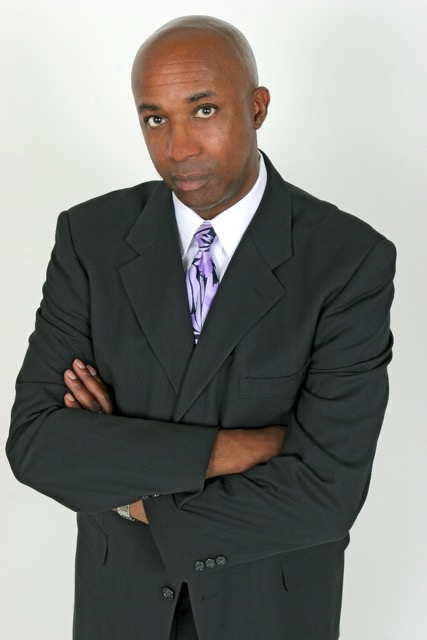By Reggie Brooks
A thorough inspection of the subject property will serve as a basis from which to begin the rehabilitation. Until you are experienced enough to perform this inspection yourself, it is wise to seek the services of a competent professional. Most contractors will give you a free estimate of repairs when they know they stand a chance of getting the job.
You may consider exercising your option to do the work yourself. In the beginning, it might be worth while to spend your time working on your properties, but as the number of properties you own increases, you’ll be better served to delegate your fix up work to some one else, while you focus on finding more deals. If you are going to do a fair amount of work on your properties, always keep in mind that if you’re not a plumber, electrician, roofer, carpenter or such, don’t try to tackle jobs that are beyond your skill level. Leave those jobs for the professionals.
Another word of caution. Many times you’ll find that a little cosmetic repair will bring a property back to life, thus saving you lots of money. It is important not to over-rehabilitate your project. If the property is in a low to moderate income neighborhood, the amount of money you spend on such items as flooring, plumbing fixtures, door hardware, etc. would probably be lower than that of a property in a high dollar neighborhood.

Do a little shopping around for the best prices on materials. While your local hardware store may fill your needs when it comes to small items, rarely can they compete with the large contractor warehouse type stores. If you are planning to do some or all the work yourself, I recommend that you purchase good quality tools. Much money is wasted on cheap tools that have to be re-purchased over and over again. If you’re performing a small job and have no desire to do your own contracting work, then it doesn’t matter as much.
Be aware that you can rent almost any tool you’ll ever need from an equipment rental yard. Look in the local telephone directory under “Rental”. While rehabbing the property, pay particular attention to the following:
- Curb appeal: Exterior paint and landscaping are the first and the last thing a buyer or renter sees. Don’t skimp – make a good impression. More than likely they’ll drive by at different times of the day and night. Give them something pleasant to think about.
- If you’re remodeling (moving interior walls around), try to create a design that will give the property an open feeling.
- You may find it more cost effective to replace old, outdated kitchen cabinets with new ones. Look in your local phone directory for cabinetmakers and compare prices.
- Consider using ceramic floor tile instead of sheet goods. It may be a little more expensive, but it will pay off in the long run.
- Consider installing ceramic counter tops instead of the formica type. Not only are they more durable, they are also more attractive to potential renters or buyers.

When rehabbing, some of the areas to focus your attention are:
- Foundation
- Plumbing system
- Electrical system
- Roofing
- Interior walls
- Exterior walls
- Landscaping
Foundations
The two most common types of residential foundations are the concrete slab, and the raised foundation. Properties that are built on a concrete slab are secured by anchor bolts protruding from the concrete. Also, they have no crawl space to allow a person to get under the property.
The raised foundation is one where the property sits on top of a continuous concrete foundation that extends around the perimeter of the building. This type of foundation does have a crawlspace which allows a person to crawl under the property. Some of the signs of possible foundation problems may include, but are not limited to:
- Major cracks in exterior walls
- Major cracks in interior walls
- Doors and windows operating improperly
- Floors not level
If the subject property shows signs of possible foundation trouble, and if the profit potential is great enough, have a foundation expert take a look at it before you make a commitment to purchase.

Plumbing Systems
Water flows to your property from the serving utility company through a water meter, usually located at the front property line. In very cold climates this meter may be located inside the house. The main shut-off valve to the property should be mounted above grade, and can usually be found near the front of the property on the same pipe as the outdoor faucet.
The pipes that carry water underground to the property are usually galvanized, copper, or plastic. The interior pipes are usually galvanized or copper. Since building codes vary by jurisdiction, check with your own local building department for current codes.
Water Heaters
A typical water heater is approximately 5 feet tall. At the top of the water heater are two pipes, one with a shut-off valve (the cold water inlet side). This is the valve that shuts off the hot water to all the fixtures in the property. The water pipes are usually connected to the water heater by flexible connectors.
A gas water heater has a vent at the top to allow heat and unburned gases to escape. It should be connect to a venting system which terminates at least a foot above the roof. At or near the top should be a temperature and pressure relief valve. The purpose of this TPRV is to prevent the buildup of excess heat and pressure. If it leaks, it can be replaced.
At the bottom is a valve that is used for draining the water heater. This too, as well as every other component previously discussed can be replaced if they prove to be defective. However, if the water heater is old, and looks like it may give you problems, it’s better to replace it now than to have to be bothered with it later.
Stall Showers And Bathtubs

Your property might have any combination of standard bathtub, shower over tub, shower enclosure, or stall shower. If the shower or tub has a glass enclosure, it must be tempered safety glass or approved plastic. The shower head, faucets, and spout should all be in good working condition. If not, they can all be replaced. Check and replace if necessary any worn grouting and caulking.
Toilets
Make sure the toilet is secured properly to the floor. Check for leaks around the base. If it does leak, it’s probably as simple as a new wax ring that goes under the toilet. Flush the toilet and let it fill. If it keeps running, either the tank ball assembly or the flapper may need to be replaced, or the water level should be adjusted so that it shuts off before it reaches the top of the overflow. If the toilet is cracked either in the tank, the bowl, or at the base, or otherwise causing too many problems, replace it.
Sinks
Turn the faucets on and off. They should operate smoothly. If they drip a little, replacing the seats and washers should take care of it. There should be two shut off valves under the sink, unless you have a wall-mounted faucet. The shutoff valves should operate smoothly. While you’re under the sink, check the drain lines and the trap for signs of leaking or rotting. If any of these items do not operate properly, they should be replaced.

Electrical Systems
Every circuit should have a standard circuit breaker or should at least be fused. Each room should have at least two electrical receptacles. The kitchen should have at least two receptacles that are on separate circuits. Replace all broken or cracked cover plates on light switches and wall receptacles. If possible, replace all pull-chain type fixtures with standard fixtures and wall switches. Don’t hesitate to seek the services of a professional whenever appropriate.
Roofing
Only if it is necessary should you consider adding a new roof. If the ceilings show water damage and a close inspection reveals that the present roof is deteriorated beyond repair, then you should consider the possibility of adding a new roof.
Contact several reputable roofers in your area. They will usually give a free roofing inspection. Some roofers may charge a fee, then credit that fee toward the total cost of the roof if you hire them. Gather several estimates and do some comparison shopping in order to get the best deal.
Consider another option: if you do some inquiring at your local roofing supply house, you may find roofers who are between jobs, and will re-roof your property at a very reasonable rate. You might consider buying all the materials, and getting the contractor to supply the labor.

Interior Paint
Pearl White, Navajo White, and Antique White are the common colors used in residential properties. Using a shade of white paint in the interior will make the rooms feel larger. If you hired a painter, he would probably suggest that you use flat paint in every room except the kitchen and bathroom, where you would use a semi-gloss paint. Some investors use semi-gloss paint through their rentals, because it’s easier for a tenant to wash the walls.
Water-based paints are usually easier to work with, and they usually do a sufficient job. Consider using an oil-based paint in the kitchen, bathrooms, service porch, and on the trim. You’ll find that oil based paint is more durable than water-based paint.
Exterior Paint
The exterior of the property may need to be painted. Choose a color that will resist fading and will add to the “curb appeal” of the property. If you’re not sure about a color, drive up and down various streets and see what you like. More people are attracted to the lighter colors. Choose a complementing color for the trim, and consider painting the porch the same color.
Whether you do the job yourself or you get a professional painter to do the work, insist on a good quality job. Old paint should be scraped and sanded, and any holes should be filled before primer and paint.
Consider using the same color combination on all of your projects. This way you only have to keep one color combination in storage for any touch up that might be needed.
Landscaping

Landscaping the front of your property to give it “curb appeal” is essential for getting the most from your property whether you plan to rent or sell. If you’re planning to rent the property, the nicer you make the front of your property look, the better the tenant you’ll attract.
If the grass needs cutting, you can usually hire some of the neighborhood kids to clean it up. A schedule of watering and fertilizing should bring it back to life. If it’s necessary to get the yard looking good right away, then “sod” is your answer. Most gardeners and landscapers can do a neat job with sod, and the end result can be instant lawn.
Top off your landscape with some strategically placed shrubs and some pretty flowers. You’ll be surprised at what this can do for your properties curb appeal, and ultimately, your bottom line.
It is important to continue your education in creative real estate practices. The more you expose yourself to creative real estate principles and techniques, the more you’ll learn. The more you know, the better prepared you are to solve a seller’s problems. The more problems you solve, the richer you get.
I’ll see you at the top!
Reggie Brooks

Reggie Brooks, is an international speaker, author and educator, dedicated to inspiring others to achieve personal success through real estate investment. He is also the #1 Vacant, Abandoned & Distressed Property Specialist in North America.
Having risen above a life of poverty, he has achieved what many people consider to be impossible. He went from making $36,000 per year at the local telephone company, to making over $40,000 per month in his real estate business. Today, Reggie delivers his personal philosophies for success at major business venues and expositions throughout the United States. Reggie attributes his success to faith, dedication to success, and to the invaluable coaches he has had along the way.















































